“You’ll be with me like a handprint on my heart,” Elphaba, the Wicked Witch of the West, sings to Glinda the Good at the end of the musical Wicked. For fans of the longest-running show to open on Broadway this century, it’s an apt metaphor: Over the past two decades, no musical has become quite so embedded in the DNA of theater aficionados of a certain age as this dark prequel to The Wizard of Oz.
For most of those audiences who grew up on this version of Oz, delivered through Stephen Schwartz’s delicious, rhythmically inventive songs and Winnie Holzman’s astonishingly propulsive book, Jon M. Chu’s two-part film adaptation will likely make those heart handprints glow bright. Just like Chu’s exuberant screen version of In The Heights, the first part captures the spirit of the original, a strange concoction of whimsical fairy tale and dystopian thriller, with lavishly staged musical numbers scampering over lushly rendered landscapes. And as the central enemies-to-besties, the green-skinned Elphaba and pink-draped Glinda, Cynthia Erivo and Ariana Grande are alchemically eruptive together.
But audiences will also have to wait a year to hear Erivo sing that “handprint on my heart” lyric, since the song “For Good” takes place in the show’s final minutes. This first part, which, at over two and half hours, runs just about the same length as the entire stage musical, only spans the show’s first act. The 12-month intermission is less of a problem than this first film’s insistence on over-padding, as almost nothing of the extra hour of material needs to be here.
Wicked’s greatest dramatic asset, even more so than Schwartz’s score, is Holzman’s brutally efficient book. In crafting the stage musical, which charts Elphaba’s rise from undergraduate outcast at Shiz University to the Most Wanted Witch in Oz, Holzman and Schwartz identified the exact amount of exposition, backstories, and comic asides that they needed to expand a fantasy world and communicate their characters, cutting every second of excess fluff. On stage, Elphaba finishes belting the roof-raising “The Wizard and I,” in which she dreams of becoming famous and being “de-greenified,” and then immediately steps a few feet stage left to launch into a rageful duet, “What Is This Feeling?,” with Glinda. There’s no transition, no perfunctory dialogue—the show just barrels shrewdly from essential moment to essential moment.
The film, conversely, takes its sweet time, adding longer scenes between every song, including lots of silly banter for Glinda’s reimagined entourage (Bowen Yang and Bronwyn James), even if there’s almost no changes to the plot. On screen, Wicked feels self-consciously elongated whenever it stretches beyond the musical’s exoskeleton, as if the idea of making a lengthy movie predated the plan for what to do with all the extra minutes. The scene in which Glinda reaches out to Elphaba by mirroring her awkward dance moves at a party can be a tearjerker on stage, but the slow-motion treatment here as the dance goes on and on drains it of emotional energy.
Wicked’s frequent patches of sluggishness are particularly frustrating because so much of the film—especially the songs—is glorious. As in In the Heights, Chu excels at timing shots to match the music precisely, treating Schwartz’s music with an invigorating reverence. When Glinda sings the line, “Of course, I’ll rise above it,” the melody leaps up on the word “rise” and the camera pans upward. Since Chu’s stylistic vigor is essentially playful, Wicked shimmers most distinctively in the comic set pieces, especially “What Is This Feeling?,” choreographed with giddily vicious energy. Much of the broader musical staging, like the ensemble’s dizzying leaps across a series of spinning clock faces in “Dancing Through Life,” is stunning.
Between Oz’s stark, bright colors, the sweeping shots of winged monkeys in flight, and soaring gestures toward the iconography of The Wizard of Oz, Alice Brooks’s cinematography can sometimes offer an exhilarating sensory overload. In the opening sequence, undergirded by newly percussive orchestrations, the camera captures an incandescent rainbow before flying over Dorothy and company making their way across the Yellow Brick Road. Wicked was, perhaps, the last great mega-musical, following in the footsteps of less nimble, more somber shows like Les Misérables and The Phantom of the Opera: Unlike those musicals’ lackluster stage-to-screen adaptations, the world rendered here actually feels huge and wild and full enough to encompass a reality worthy of the largesse suggested on stage.
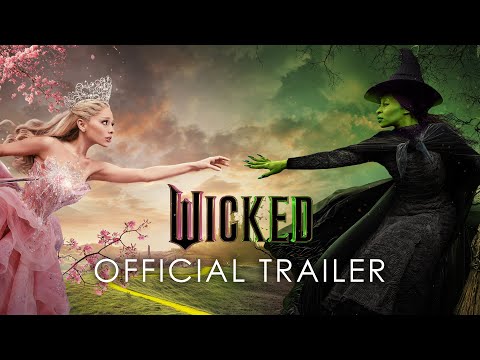
For devotees looking to see Wicked explode on to the screen, then, Chu’s vision won’t disappoint. Neither will his commitment to ceding several minutes of the film to a series of Broadway cameos that go on for long enough that newcomers to the Wicked-verse may be completely lost. If the utterly campy sequence, which unsubtly pokes fun at a rumored behind-the-scenes feud from 2003, isn’t targeted at casual audiences, the filmmakers are, at least, unapologetic and self-aware in catering to the viewers primed to care the most.
Fortunately, neophyte audiences won’t require any extra knowledge to fully appreciate the freshness blooming from the central performances. Erivo blends her film experience and Broadway bona fides to offer an Elphaba that marries the smallest of gestures—a sweet, inward smile before she launches into her hopeful “The Wizard and I,” for example—with the stadium-sized bravado of her “Defying Gravity.” Though the screenplay’s additions flesh out her character superficially—Elphaba pedantically corrects Glinda’s grammar—Erivo offers a slightly snarky sweetness that makes the role feel unusually layered.
Erivo uniquely takes advantage of all the extra runtime to deepen her characterization, carefully exploring Elphaba’s self-loathing (she blames herself for her mother’s death and her sister’s disability) and the past hurt that fuels her burgeoning activist bent. And the presence of a Black actress in the role reinforces how much Wicked is a barely disguised allegory about skin color and the flammable potency of vilifying the Other for political gain. Erivo actually pushes back against the script’s emphasis on Elphaba’s Carrie-like powers that wreak havoc whenever her emotions get the better of her: She makes Elphaba’s overlooked wit and care and intelligence infinitely more interesting than her magical potential.
Aiding in this redefinition of the character, of course, is the actress’s voice. While Elphabas on Broadway have famously added flamboyant vocal riffs to “The Wizard and I” or “Defying Gravity,” they’ve been constrained by certain stylistic limitations about adapting the score. Erivo seems to have freer rein to shape the role around her own gifts. Especially in the tenderly wistful ballad “I’m Not That Girl,” she weaves liquid melismas into the melody, tendrils of Elphaba’s longing that will surely become a new gold standard for interpreting the song.
If Grande’s fluttery Glinda doesn’t equivalently redefine the role, it’s still an astutely funny, splendidly sung performance. Whenever Grande hits especially high soprano notes, Glinda’s on-screen posse breaks out into applause, perhaps a little meta wink at the naysayers who doubted whether Grande had the vocal chops to sing the role. She not only does, but she’s also refreshingly unafraid to make Glinda quite cruel at the start of the film. Most Wicked castings tend to tilt toward one protagonist or the other—it’s Elphaba’s story or it’s Glinda’s, depending on who’s in the roles—but the pairing here provides a lovely balance, with Holzman and Dana Fox’s extended script giving them both, at least, extra room to grow.
As Fiyero, the love interest for both witches, Jonathan Bailey is a sympathetic charmer, even if he never persuades that he’s as brainless as he professes. (In perhaps a nod to the character’s role in many a young person’s sexual awakening, Chu makes it clear that girls and guys swoon alike when this Fiyero arrives at Shiz.) Ethan Slater makes an immediate endearing impression, too, as the munchkin Boq, who’s hopelessly smitten with Glinda. Most of the other performers in supporting roles—Michelle Yeoh’s regally sinister Madame Morrible, Marissa Bode’s gentle Nesssarose, and Jeff Goldblum’s perkily manipulative Wizard—provide compelling introductions to characters largely on standby for meatier moments in the second film.
It would be a treat to see this entire cast on stage. But that, perhaps, is the kind of takeaway that suggests this Wicked is more of a rich tribute to an excellent stage piece than a truly great film in its own right. I left Chu’s In the Heights eager to watch it again, while I left Wicked wondering when I could next get to the Gershwin Theatre to revisit a musical that still belongs, despite the vibrancy of the cinematographic celebration it’s received, behind the footlights.
Since 2001, we've brought you uncompromising, candid takes on the world of film, music, television, video games, theater, and more. Independently owned and operated publications like Slant have been hit hard in recent years, but we’re committed to keeping our content free and accessible—meaning no paywalls or fees.
If you like what we do, please consider subscribing to our Patreon or making a donation.


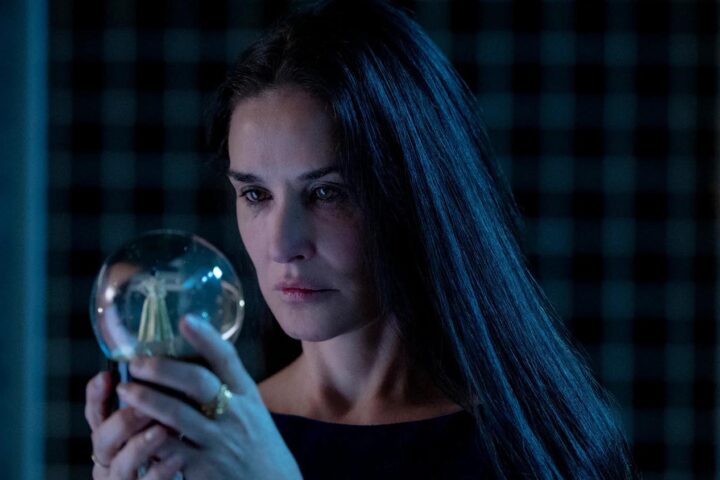
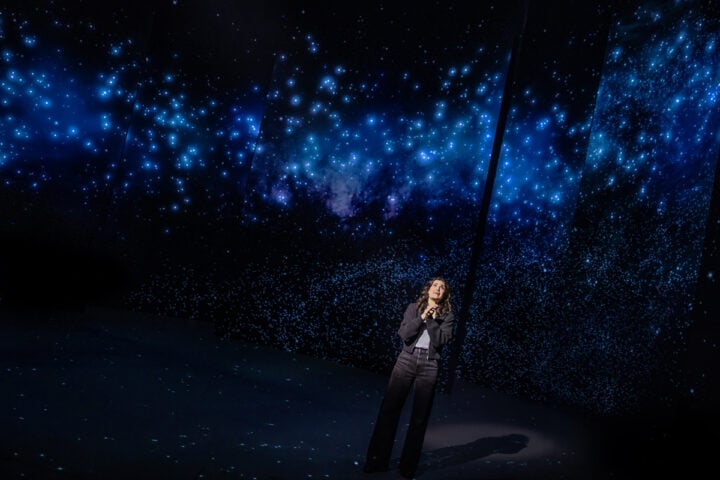
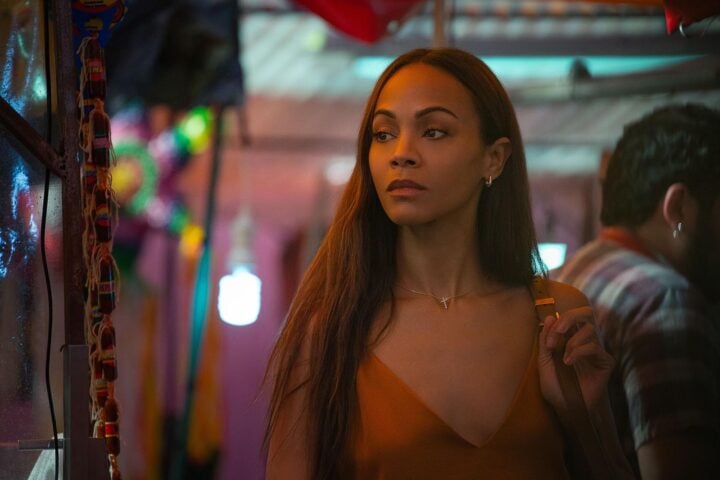

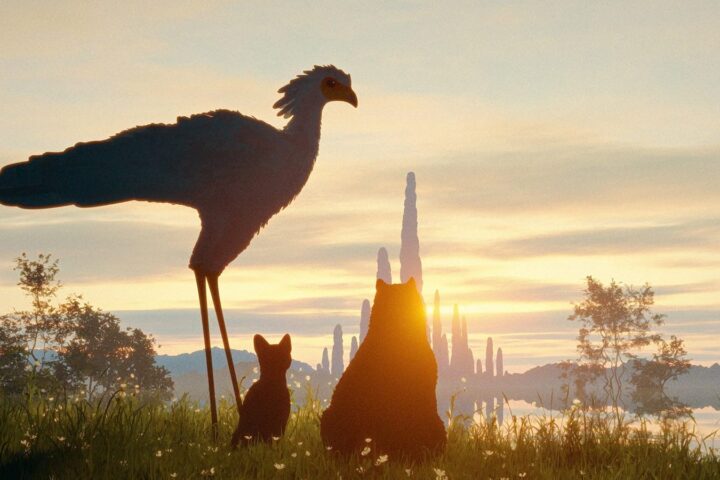
I can’t trust you after this review.
I think this does a good job of summing up the film.